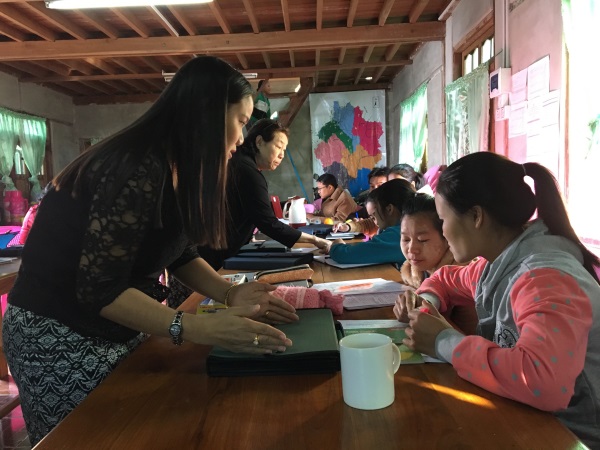Building global health
March 22, 2016
Share

A team of Queen’s University researchers recently visited Myanmar as partners in an effort to decrease mother to child transmissions of hepatitis B in the Southeast Asian country. The group is currently implementing a monitoring and evaluation program for hepatitis B vaccinations for newborn babies in Karenni State.
The Queen’s team included Susan Bartels (Emergency Medicine), Eva Purkey (Family Medicine), Colleen Davison (Public Health Sciences), Heather Aldersey (Rehabilitation Therapy), Shruti Sebastian (Family Medicine) and Hugh Guan (Family Medicine).
“Health workers are immunizing babies against hepatitis B but there is no system in place to determine how effective it is,” explains Dr. Purkey. “Karenni State is a rural area of Myanmar where 70 per cent of deliveries happen at home and where immunization programs do not reach everyone. The hepatitis B vaccination is very effective in preventing mother to child transmission, and should be encouraged.”

The transmission rate of hepatitis B between mothers and their babies can be as high as 80 to 90 per cent. Hepatitis B can cause many serious health issues including liver cancer and cirrhosis. The Queen’s team is part of an initiative helping to train rural workers to give the immunizations and collect relevant and on-going data to track the implementation of the intervention.
“The local health system will arrange the vaccine administration, while we are supporting the monitoring and evaluation components.” says Dr. Davison. “After distributing the vaccine, monitoring and evaluation are essential to determine if and how the program is working and whether it should be expanded. As scientists and practitioners we have been able to support this important work of our partners.”
Along with the vaccination program, the team gathered new information that could direct future research projects including creating a Queen’s field office on the border between Myanmar and Thailand.
“I would love for there to be locations around the world where Queen’s students could learn about global health and build their field experience, while contributing meaningfully to the on-going work of local initiatives and partners,” says Dr. Davison. “We are making great strides already with our partners in countries like Myanmar.”
Dr. Bartels also has plans for another important project.
“My biggest takeaway from this time in Myanmar is that the refugees living along the Thai-Burmese border aren’t ready to go back,” she says. “Their old lives are non-existent. I would love to focus my research around repatriation and what aid can be provided to help with the transition.”
The research team is preparing to travel back to Myanmar and currently have funding to send two people through the Department of Family Medicine’s Centre for Studies in Primary Care. The early data should reflect if the vaccination program is helping to reduce vertical transmission of hepatitis B virus from mother to child in Karenni State, Myanmar. This project highlights how members of the Queen’s community are coming together to engage in global health research and development internationally.